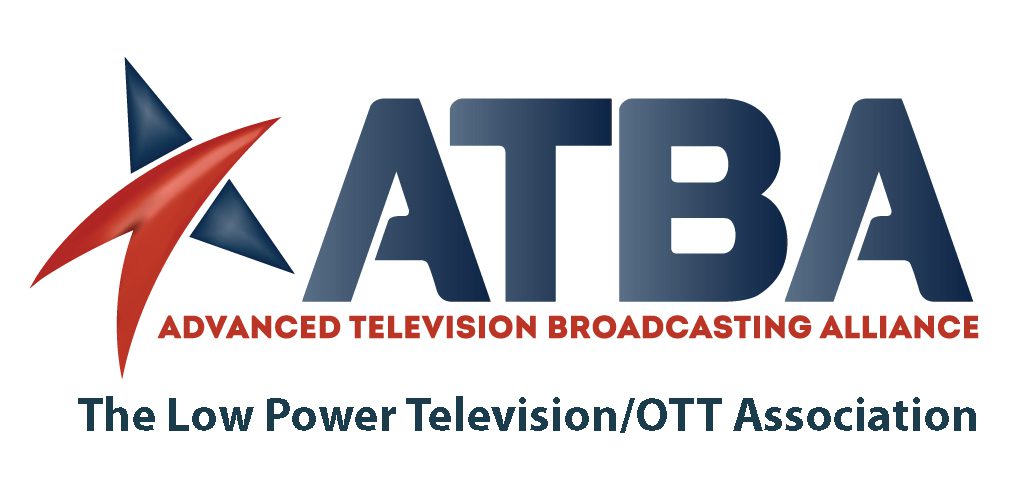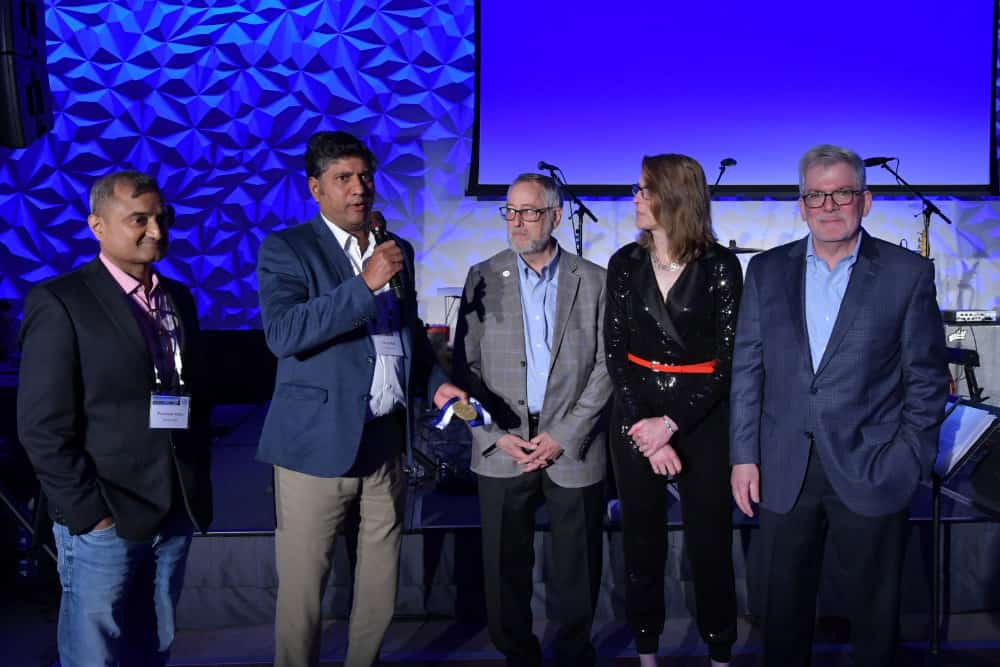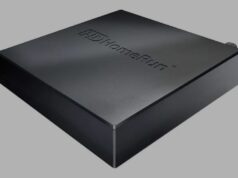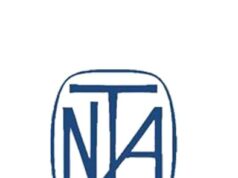Washington, D.C. – June 16, 2023 – At the annual NextGen Broadcast Conference this week, the Advanced Television Systems Committee (ATSC) honored Saankhya Labs with the organization’s Mark Richer Industry Leadership Medal and Glenn Reitmeier with the Bernhard J. Lechner Outstanding Contributor Award.
The Richer Medal
Named for the legendary former ATSC president who led the organization for two decades spanning both ATSC 1.0 and ATSC 3.0, the Mark Richer Industry Leadership Medal recognizes an individual or team that demonstrates exemplary leadership in advancing the mission of ATSC and epitomizes the vision, tenacity and leadership qualities that were the hallmark of his leadership.
Established in 2007, Saankhya Labs is India’s first fabless semiconductor solutions company whose products and solutions include award-winning, fully programmable Software Defined Radio chipsets powering their Direct To Mobile (D2M) Broadcast and Converged 5G Broadband Broadcast connectivity solutions among other 5G products and services.
“Saankhya Labs is on the vanguard of the experimental activity in Bengaluru and Delhi with ATSC 3.0 for Direct-to-Mobile broadcast services. They not only shine as technical implementers and relationship managers but also as exemplary team members working collaboratively with the entire ATSC community, demonstrating the benefit of Direct-to-Mobile services to the Indian people and how ATSC 3.0 is leading a technical solution for video, radio, and data services for fixed and mobile devices,” said ATSC President Madeleine Noland.
“Saankhya Labs is honored to be recognized by ATSC with the 2023 Mark Richer Industry Leadership Medal. Video traffic occupies more than 70% of mobile network traffic. Much of this data is being simultaneously consumed across multiple mobile devices. With 1.2 billion cell phones in India, Direct To Mobile (D2M) Broadcast makes efficient use of the traditional broadcasting spectrum. We are pleased to be developing revolutionary technology to fulfill this need and opportunity,” said Parag Naik, CEO of Saankhya Labs.
The Lechner Award
The Lechner honor is bestowed once a year to an individual representative of the ATSC membership whose technical and leadership contributions to ATSC have been invaluable and exemplary.
The 2023 Lecher Award recognizes decades of service by Glenn Reitmeier to ATSC and his pioneering industry contributions. In addition to serving multiple terms as ATSC Board Chairman, he has led the Planning Team on Future Broadcast Ecosystem Technologies (PT-4) from its formation until the present. PT-4 has worked to define key aspects of new-generation broadcasting. Punctuated by key technology leadership roles at Sarnoff Lab and NBC Universal, Reitmeier’s career spans the analog NTSC era through the Digital HDTV Grand Alliance, ATSC 1.0, and the development and deployment of ATSC 3.0.
“Glenn Reitmeier has exemplified the characteristics of the late Bernie Lechner, dedicated his technical prowess and his leadership skills to numerous ATSC projects and initiatives over the years. Glenn’s body of work spans so much of ATSC’s history, and we are pleased to confer this award to him on ATSC’s 40th Anniversary,” Noland said.
The Lechner Award recognizes the first recipient, Bernard Lechner, for his outstanding service to the ATSC. Lechner was the retired Staff Vice President, of Advanced Video Systems of RCA Laboratories. His 30-year career at RCA covered all aspects of television and display research.
“This is a special honor for me since I had the privilege of having Bernie Lechner as my boss and mentor for many years at RCA / Sarnoff Laboratories. Bernie taught me so many things about the importance of standards to the industry ecosystem and to business, as well as the values of collaboration and compromise. So many insights learned from my mentors were crucially important as we went through the competitive and later collaborative phases of the Grand Alliance and set the ATSC 1.0 standard. Those same values or principles are at work today within ATSC and its current standards-setting process,” Reitmeier said.














